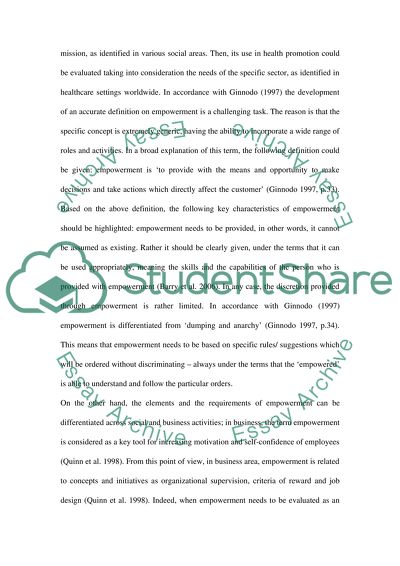Cite this document
(“Empowerment in health promotion Essay Example | Topics and Well Written Essays - 3000 words”, n.d.)
Retrieved from https://studentshare.org/law/1424495-empowerment-in-health-promotion
Retrieved from https://studentshare.org/law/1424495-empowerment-in-health-promotion
(Empowerment in Health Promotion Essay Example | Topics and Well Written Essays - 3000 Words)
https://studentshare.org/law/1424495-empowerment-in-health-promotion.
https://studentshare.org/law/1424495-empowerment-in-health-promotion.
“Empowerment in Health Promotion Essay Example | Topics and Well Written Essays - 3000 Words”, n.d. https://studentshare.org/law/1424495-empowerment-in-health-promotion.


